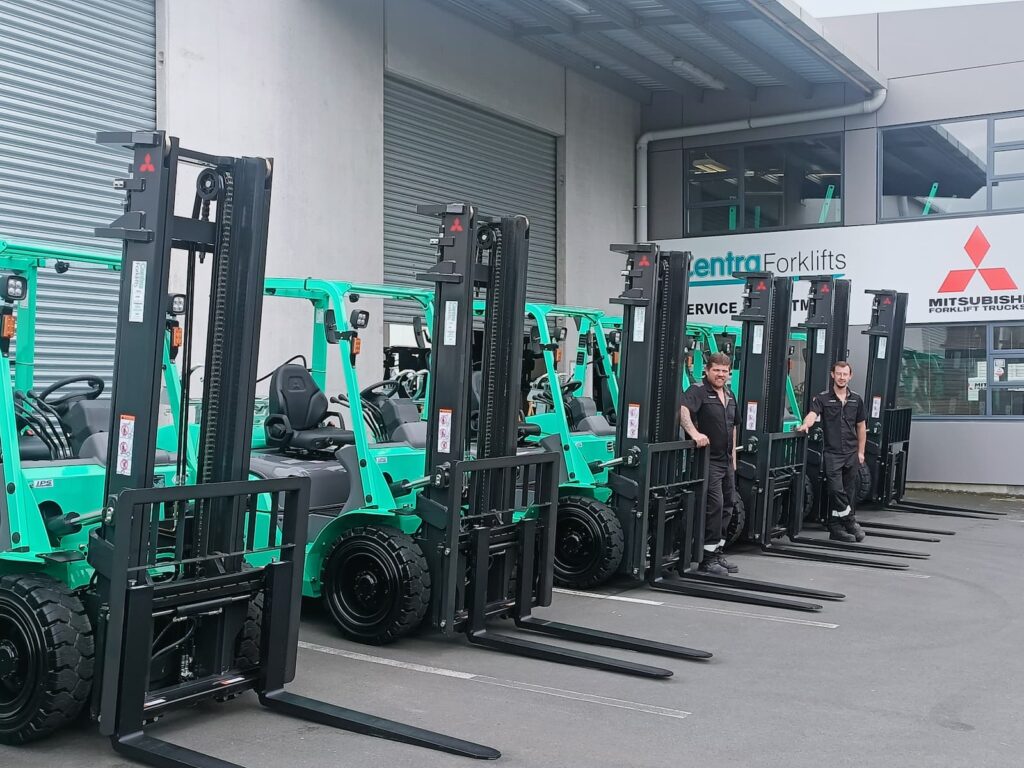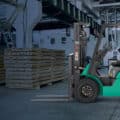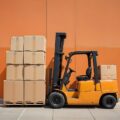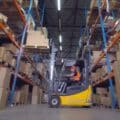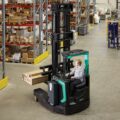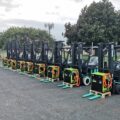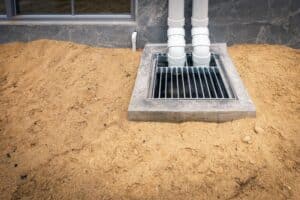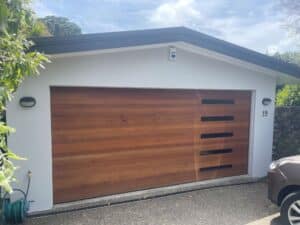What Defines a Good Forklift Deal?
It’s About Value, Not Just Price
In the context of the New Zealand forklift market, a “good deal” encompasses much more than the lowest price. Businesses often get caught up in chasing bargains without considering long-term costs such as reliability, maintenance, and operational suitability.
A good forklift deal means purchasing a machine that delivers dependable performance, suits your specific working conditions, and maintains a decent resale value. It’s also about understanding total cost of ownership, factoring in maintenance, compliance, fuel type, and downtime risk.
Choosing a cheap forklift that breaks down frequently or can’t handle your workload can lead to costly disruptions. True value is about securing long-term efficiency and peace of mind.
Matching Specs to Your Workload
A good deal is only good if the forklift fits your operation. Consider the typical load weights, dimensions, aisle widths, lift heights, and the frequency of use. For example, an electric forklift might be perfect for indoor warehouse settings, while a diesel-powered unit could be better suited to rough terrain.
If you under-spec your forklift to save money upfront, you’ll likely spend more on repairs, performance issues, or even replacing it prematurely. Over-specifying, on the other hand, can mean paying for features you don’t need. Value lies in selecting the right machine for the job.
How to Assess the Forklift’s Condition and History
Key Areas to Inspect
Inspecting the condition of a forklift is one of the most critical steps in identifying a quality deal, particularly for used models. Begin with the engine and drivetrain, listening for abnormal sounds, checking for oil leaks, and evaluating how smoothly it starts and runs. Examine the hydraulic system for signs of wear, cracking hoses, or sluggish operation.
The mast should raise and lower evenly, and the tilt mechanism should respond promptly. Tires are another key indicator of use; excessive or uneven wear can signal alignment issues or heavy use. Also, inspect the forks and carriage for structural integrity, as damage in these areas can compromise safety.
Maintenance Logs and Ownership Records
Ask for complete service records to confirm regular maintenance. Forklifts that have been serviced consistently tend to be more reliable and are less likely to surprise you with hidden faults. Review ownership history to ensure it hasn’t changed hands too frequently, which could be a red flag.
In New Zealand, it’s essential to ensure the forklift meets WorkSafe NZ standards, missing compliance documentation can delay or prevent usage in certain settings. A good deal should come with full transparency and traceability.
Researching Market Pricing in New Zealand
Tools for Price Benchmarking
To determine whether you’re looking at a competitive deal, use trusted NZ platforms like Trade Me, Turners, Forklift Trader, and dealership websites. Compare prices for forklifts with similar specifications, age, and condition. Take note of brand trends, some brands retain value better due to superior build quality and parts availability. Factor in location differences too, as prices can vary between Auckland, Wellington, and Christchurch due to freight costs and dealer presence.
Warning Signs in Pricing
If a forklift is significantly cheaper than similar listings, approach with caution. It might lack essential documentation, have underlying mechanical issues, or be an older model with limited parts support. Conversely, an overpriced machine may be loaded with unnecessary features or inflated by dealer mark-ups. A well-informed buyer is far better equipped to distinguish between fair market value and over- or underpriced offerings. Use your research as leverage during negotiations.
Choosing a Trustworthy Seller in NZ
Dealer vs Private Seller
Who you buy from matters. Authorised forklift dealers in New Zealand often offer warranties, financing options, and comprehensive pre-sale inspections. These added assurances can protect your investment. In contrast, private sellers might offer a better upfront price, but with greater risk, especially if you can’t verify maintenance or ownership. Some private listings may be ex-rental units or fleet excess from large operators, which can be a good value, provided they’ve been properly maintained.
Verifying Seller Reputation
Before committing to a purchase, check online reviews, testimonials, and forums for insight into the seller’s reputation. Look for businesses that have been in operation for several years, have a physical location, and offer after-sales support.
Reputable sellers are transparent, responsive to queries, and willing to allow independent inspections. A good deal isn’t just about the forklift, it’s also about trusting the person or business you’re buying from.
Features That Add Real Value
Prioritise Safety Features
Modern forklifts come with a range of safety features designed to protect operators and reduce the risk of workplace incidents. Look for reversing alarms, seatbelt interlocks, overhead guards, speed limiters, and load backrests.
These aren’t just bonuses, they may be required by WorkSafe NZ standards and insurance policies. Forklifts with these features built-in often have better resale value and lower risk of liability, which adds to their overall worth.
Efficiency and Versatility
A forklift that consumes less fuel or has a longer battery life can significantly reduce operating costs. Electric forklifts are increasingly popular in New Zealand due to their quiet operation and lower environmental impact, but they must suit the usage environment.
Forklifts with adjustable forks, attachments, and all-terrain capabilities are generally more versatile, adding long-term value and enabling broader application across different tasks or industries.
In-Person Forklift Evaluation
Test Drive the Equipment
Nothing replaces an in-person test. Start the forklift and let it idle. Listen for odd noises or vibrations. Operate it through a full range of movements, lifting, tilting, reversing, and braking. If possible, test it with a typical load to simulate real working conditions. Pay attention to how the controls respond and whether there’s any hesitation, stiffness, or excessive play. A smooth, responsive forklift is usually a sign of proper upkeep.
Checklist for Physical Assessment
Walk around the machine and look for cosmetic damage, rust, bent components, and tire tread. Inspect the mast rails, chains, and lift cylinders for cracks or signs of patchwork.
Check all safety lights, gauges, and controls. Confirm that the forks are straight and properly aligned. If anything seems off, request an independent inspection from a forklift technician to avoid costly surprises post-purchase.
Finding Great Deals Through Auctions and Liquidation Sales
Where to Look
In New Zealand, you can find discounted forklifts through auctions like Turners, Grays Online, or liquidation sales from companies updating their fleets or closing down. These sources often provide lower prices than traditional dealerships, though the selection may be more limited.
Caveats and Cautions
Auction forklifts are typically sold “as is,” with limited warranties. You may not be allowed to test drive them thoroughly, so you’ll need to rely on inspection reports or hire a mechanic to assess them before bidding. Always read the terms and conditions and factor in buyer premiums, GST, and transportation costs when calculating value.
Negotiating for a Better Deal
Use Data to Back Your Offer
Enter negotiations armed with data. Mention other listings, service gaps, or wear-and-tear when making your case for a better price. Show that you’ve done your homework and are a serious buyer, not just tire-kicking.
Bundle Extras for More Value
Rather than only focusing on the price, ask the seller to include delivery, servicing, spare parts, or operator training. Dealers often have some flexibility here, especially toward the end of the financial year or during sales events.
Understand Financing and Hidden Costs
Calculating True Cost of Ownership
Many buyers overlook secondary costs like transportation, certification, fuel or power usage, ongoing maintenance, and operator training. These can add significantly to the overall expense and should be factored into your purchasing decision. A forklift that seems affordable at face value might become expensive when you calculate total running costs.
Lease vs Buy in NZ
For some businesses, leasing a forklift may provide better flexibility, especially if your operational needs fluctuate. Leasing allows for upgrades and reduces capital outlay, though you won’t build equity. Buying is better for businesses that use forklifts daily and can manage long-term maintenance. Always review the fine print in finance agreements and understand all associated fees and obligations.
Steps to Finalise a Safe and Smart Purchase
Compliance and Certification
Before you seal the deal, confirm that the forklift complies with all relevant New Zealand safety and workplace regulations. If you operate in a regulated industry, your machine may need specific compliance certificates, such as WorkSafe NZ approvals or operator manuals in English.
Documentation and Due Diligence
Ensure you receive all relevant paperwork, proof of purchase, registration details, service history, compliance certificates, and warranty information. Double-check serial numbers to ensure the machine hasn’t been reported stolen or written off. If you’re unsure about any part of the transaction, get legal or mechanical advice before proceeding.
Final Thoughts on Securing the Best Forklift Deal
Be Patient and Well-Informed
Getting a great deal on a forklift in New Zealand doesn’t happen by accident. It takes research, inspection, negotiation, and a clear understanding of your business needs. Don’t rush into a purchase, take the time to compare options, inspect machines thoroughly, and ask questions until you’re satisfied.
Don’t Be Afraid to Walk Away
Sometimes, the best decision is to wait. If a deal doesn’t feel right, the price seems suspiciously low, or the seller isn’t cooperative, it’s wise to walk away. There will always be another opportunity, and your diligence will ultimately pay off with a purchase that serves your business reliably for years to come.

